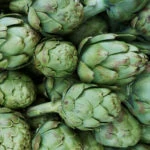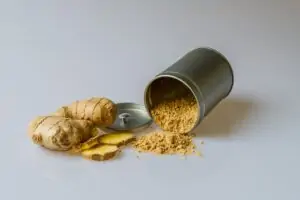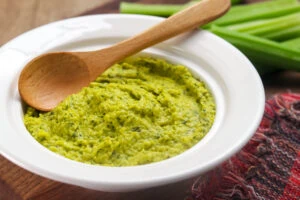A delicious, fragrant, and earthy spice that is found in Mexican and Indian cuisine, cumin is what you’ll want to reach for when cooking enchiladas, tacos, and curries.
What is Cumin?
Cumin spice is the seeds from the Cuminum cyminum plant in the parsley family. When dried, cumin spice is used for its health benefits and to add a warm earthy flavor with mild bitter undertones to Mexican dishes, north African cuisine, and Indian foods like curry.
Cumin seeds are tiny and oblong, yellow-brown when dried, and have eight ridges that hold essential oils that give this spice its aromatic character and flavor.
Cooking with Cumin Seeds and Ground Cumin
The best way to use whole seeds is to add them to a hot, dry skillet. This releases their pungent oils for strong taste and aroma. Heat the seeds slowly until they give off a hot, earthy scent, and turn more golden-yellow. You can also pop them in the skillet with hot oil if you’re looking to use oil in your final dish anyway. Add the toasted or fried seeds to your dish after you’ve put it on to cook.
Middle eastern cooking uses ground cumin seeds as a main ingredient in baharat, a seven-spice mix, which is used for curry dishes and a host of other rich-in-spice foods. You can buy baharat already made in most Middle Eastern specialty stores, or make it yourself from the whole seeds.
One of South American cuisine’s most popular uses of cumin is in sofrito, a tomato dish that sautés together powdered cumin seeds or ground cumin along with jalapeños, paprika, cinnamon, olive oil, and cilantro. Cumin is added with other spices after the tomatoes are partially cooked.
North African dishes like curried cumin potatoes delivers the cumin’s mild spice notes by sautéing the seeds with other spices over medium heat before adding the potatoes and other ingredients to the same pan.
Cumin Substitutes
One of the best substitutes for cumin is whole or ground coriander. Coriander is the dried seed that comes from the cilantro plant, another family member of parsley. To substitute either ground or whole coriander for cumin, halve the amount.
Caraway seeds make another good substitute because they are also from the parsley family, and taste similar to cumin but not as strong. Use half the amount of caraway seeds as a cumin replacement.
Fennel seeds are in the parsley family too, and taste slightly similar to cumin. Fennel seeds have a licorice taste that cumin doesn’t have, and fennel doesn’t taste as earthy as cumin. Double the amount of fennel that you use instead of cumin, but keep in mind that this spice may not be a good choice in some savory dishes because of its strong licorice flavor.
Garam masala is a spice blend in Indian and South African cooking. It includes many spices as well as cumin, so it works as a supplement for cumin. Use half the amount of garam masala as you would have cumin, and increase the amount according to your taste.
How to Store Cumin
Like most other dried spices, cumin is best kept in a closed container in a dark, dry cabinet for up to six months.
Cumin seeds pack more flavor than ground cumin, and they can be easily ground just before use. But if you prefer powdered cumin, just buy a little and keep it around for no more than six months for the best of its flavor and aroma.
Where to Buy Cumin
Cumin seeds and ground cumin are easy to find in most grocery stores in the spice isle, and the spice is relatively cheap.
Some of the best quality cumin seed and ground cumin is certified organic or natural. Look for these marks when purchasing to use as a supplement or for healthy cooking in general.
Cumin is sold organic and kosher, in some health food stores.
Since cumin is a versatile spice, you can also find many spice blends that include it as a main ingredient. Some types of curry powder, less-often chili powder, and baharat include this ancient spice as a typical ingredient for quick additions of the warm flavor this popular spice offers.
Cumin Health Benefits of Cumin Seeds
There are many benefits of cumin. Cumin used as a supplement or even in cooking can help improve digestion by activating digestive proteins. It has also been known to reduce irritable bowels.
Cumin is also rich in iron, and since many people are low in this mineral, it’s a great addition to the diet on a light but regular basis.
The cumin seed’s antioxidant properties stabilize free radicals, which damage our DNA.
Cumin has also been referred to for its help in balancing blood sugar, and aiding in healthy weight loss.












